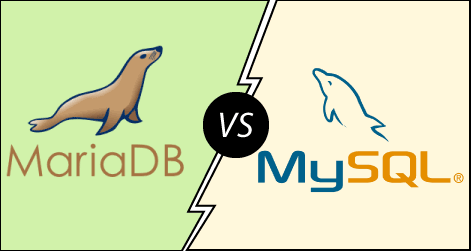Cloud Hosting
Cloud hosting is a type of web hosting that uses virtual servers running in a cloud computing environment, where data, resources, and applications are stored on multiple physical servers connected over the internet. This setup allows websites and applications to be accessible online and provides scalability, flexibility, and reliability by distributing resources across several servers.
Key Features of Cloud Hosting:
- Scalability: Resources such as CPU, RAM, and storage can be easily scaled up or down based on demand.
- Reliability: With multiple servers hosting the same data, if one server fails, others take over seamlessly, reducing downtime.
- Cost-Efficiency: Users pay for the resources they use, rather than a fixed cost, making it a flexible and potentially more affordable solution.
- Performance: Cloud hosting can distribute the load across several servers, improving performance and speed for users.
Types of Cloud Hosting Services:
- Public Cloud: Resources are shared among multiple users, making it more cost-effective but with shared infrastructure.
- Private Cloud: Resources are dedicated to a single organization, providing more control and security.
- Hybrid Cloud: Combines public and private clouds for more customized solutions, allowing for sensitive data to remain on a private cloud while other resources are managed in a public cloud.
Examples of Cloud Hosting Providers:
- Amazon Web Services (AWS)
- Microsoft Azure
- Google Cloud Platform (GCP)
- DigitalOcean
Advantages of Cloud Hosting:
- Increased flexibility and scalability
- Enhanced redundancy and reliability
- Pay-as-you-go pricing, which can be more cost-effective
- Easy integration with other cloud services
Cloud hosting is ideal for businesses and websites with varying levels of traffic and resource needs, as it allows them to scale resources up or down as necessary without needing to manage the underlying hardware.
Applications of Cloud Hosting
Cloud hosting has a wide range of applications across various industries and use cases, primarily due to its scalability, flexibility, and cost-effectiveness. Here are some common applications:
1. Website Hosting
- E-commerce Sites: Cloud hosting provides high scalability, which is essential for handling varying traffic and processing payments securely.
- Content-Heavy Websites: Websites with high volumes of media or data, such as news sites and video streaming platforms, benefit from the flexibility of cloud resources.
2. Software as a Service (SaaS)
- Cloud hosting is crucial for delivering SaaS applications over the internet. Services like Google Workspace, Salesforce, and Slack use cloud infrastructure to ensure reliability and scalability for users worldwide.
3. Big Data and Analytics
- Data Processing: Cloud hosting is ideal for processing and analyzing massive datasets, which can be resource-intensive.
- Machine Learning (ML) and Artificial Intelligence (AI): ML models require significant computing power, and cloud hosting makes it easier to access high-performance resources on demand.
4. Backup and Disaster Recovery
- Data Backups: Businesses use cloud hosting for automatic data backups, ensuring data safety and availability.
- Disaster Recovery: Cloud hosting provides a cost-effective and reliable disaster recovery solution, reducing downtime by replicating data across multiple servers and regions.
5. Content Delivery and Streaming
- Content Delivery Networks (CDNs): Cloud hosting supports CDNs, which speed up content delivery by distributing it across geographically dispersed servers.
- Streaming Services: Video and music streaming platforms, like Netflix and Spotify, rely on cloud hosting to ensure low-latency delivery to global audiences.
6. Development and Testing Environments
- DevOps and Continuous Integration/Continuous Deployment (CI/CD): Cloud hosting allows developers to set up and tear down testing environments quickly, supporting agile development.
- Containerized Applications: Platforms like Docker and Kubernetes in the cloud enable easy deployment, scaling, and management of containerized applications.
7. IoT Applications
- Smart Devices: Cloud hosting helps process and store large volumes of data generated by IoT devices, enabling real-time data analysis.
- Edge Computing: Cloud hosting can be integrated with edge computing to process data closer to its source, which is essential for latency-sensitive applications like autonomous vehicles and industrial IoT.
8. Gaming
- Online Multiplayer Games: Cloud hosting is ideal for online games that require reliable, scalable servers for hosting game data and facilitating multiplayer interactions.
- Game Streaming: Platforms like Google Stadia and Xbox Cloud Gaming use cloud hosting to stream games directly to devices without needing powerful hardware on the user’s end.
9. Healthcare
- Patient Data Management: Cloud hosting enables secure, compliant storage of sensitive health data that can be accessed by healthcare providers remotely.
- Telemedicine: Cloud hosting supports video consultations and patient record access, facilitating remote healthcare.
10. Education and E-Learning
- Online Learning Platforms: Cloud hosting powers platforms like Coursera and Udacity, allowing them to scale resources based on demand.
- Virtual Classrooms: With cloud hosting, educational institutions can conduct live classes, store lecture recordings, and provide course materials to students.
11. Financial Services
- Banking and Payments: Cloud hosting supports secure transaction processing and can handle fluctuating demand from online banking and payment services.
- Risk Analysis: Financial institutions use cloud resources for real-time risk analysis, trading algorithms, and fraud detection.
Cloud hosting is a versatile solution that enables businesses across industries to innovate and scale more effectively, all while providing a secure and reliable infrastructure.
Disadvantages of Cloud Hosting
While cloud hosting offers many advantages, it also has some potential downsides, particularly when considering data privacy, costs, and reliability. Here are some key disadvantages of cloud hosting:
1. Security and Privacy Concerns
- Data Vulnerability: Sensitive data stored in the cloud can be vulnerable to cyberattacks or breaches. Organizations that handle highly sensitive information, such as financial or healthcare data, may face additional security concerns.
- Compliance Issues: Meeting regulatory standards (e.g., GDPR, HIPAA) can be challenging, as cloud providers may store data across multiple locations, potentially complicating compliance requirements.
2. Downtime and Reliability
- Service Outages: Even major cloud providers can experience outages, which could disrupt business operations. This dependency on third-party providers means that businesses must rely on the provider’s uptime and contingency plans.
- Internet Dependency: Cloud hosting relies on a stable and fast internet connection. If the internet connection is slow or unavailable, access to cloud services will be affected.
3. Hidden or Variable Costs
- Unpredictable Expenses: Cloud hosting often follows a pay-as-you-go model, which can lead to unexpectedly high bills if resource usage spikes (e.g., during traffic surges).
- Additional Costs for Features: Add-ons like higher security, backups, or increased support levels may incur extra charges, making cloud hosting more costly than initially anticipated.
4. Limited Control Over Infrastructure
- Dependence on Provider’s Management: With cloud hosting, users have limited control over the underlying infrastructure, as the hosting provider manages updates, maintenance, and other technical aspects. This may limit flexibility for companies with specific configuration needs.
- Vendor Lock-In: Migrating from one cloud provider to another can be challenging due to differences in platforms, architectures, and APIs, potentially leading to vendor lock-in and making it harder to switch providers.
5. Data Transfer and Bandwidth Costs
- Data Egress Charges: Most providers charge for data transferred out of the cloud (egress fees), making it costly to move large volumes of data or regularly back up data off-site.
- Network Latency: While cloud servers are generally fast, there may still be latency issues, particularly if users or applications are located far from the data center.
6. Complexity in Management
- Steep Learning Curve: Managing cloud infrastructure, especially in multi-cloud or hybrid cloud environments, can be complex and may require specialized skills in areas like security, compliance, and resource optimization.
- Need for Continuous Monitoring: Since costs and performance vary with usage, cloud hosting often requires ongoing monitoring and fine-tuning to avoid cost overruns and ensure optimal performance.
7. Data Ownership and Control Concerns
- Loss of Data Control: Since data is stored on a third-party provider’s infrastructure, organizations may feel a loss of control over their own data, and certain providers may even retain the right to move, duplicate, or delete data as per their terms.
- Data Sovereignty: Cloud providers often store data across different regions or countries, which can lead to legal and sovereignty issues where data must reside within specific geographic borders for legal reasons.
8. Environmental Impact
- High Energy Consumption: Cloud data centers consume significant amounts of electricity, and while many providers aim to use renewable energy, the environmental impact can still be a concern for companies focused on sustainability.







